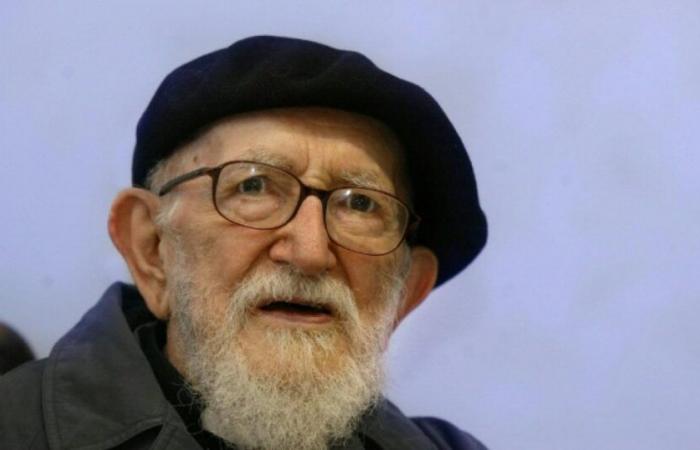“A predator”: Abbé Pierre is targeted by nine new accusations of sexual violence, including rape of a minor and facts concerning at least one member of his family, according to the latest report from the specialist firm Egaé published Monday.
“The events described took place from the 1960s to the 2000s, most of the time in France and sometimes abroad,” indicates this report, bringing to 33 the number of testimonies targeting the priest who died in 2007.
A member of Abbé Pierre's family told Egaé that she had suffered “sexual contact on her breasts and mouth at the end of the 90s”.
Another testimony mentions a “penetrative sexual act on a minor boy” – the victim did not want her testimony to be detailed in the report, specifies Egaé.
“The crescendo of reports (from Egaé, editor’s note) shows that there is manipulation, strategy, threats, blackmail, pressure and, sometimes, what can come from an organization,” believes Tarek Daher, general delegate of Emmaüs France, to Le Parisien.
“All of this taken together paints the portrait of a predator who commits extremely serious things,” he adds.
The witnesses range from the employee of a hotel in which Abbé Pierre stayed, to the caregivers working in hospitals where he was hospitalized, to a volunteer for a youth camp or a humanitarian mission, including a hostess from the air.
In addition to these nine testimonies, the Egaé firm says it “was aware of the existence of at least one other victim among the members of Abbé Pierre's family” but “this person could not be heard” .
– Around fifty cases –
This is the third report from the firm commissioned by Emmaüs International, Emmaüs France and the Abbé Pierre Foundation to shed light on the actions of Abbé Pierre, whose real name is Henri Grouès.
In July 2023, first revelations based on seven testimonies caused a shock wave as this tireless defender of the poorly housed and the most deprived has long been an icon.
In September, a second report containing 17 new testimonies led the Abbé Pierre Foundation to announce its decision to change its name and Emmaüs to permanently close the place of memory dedicated to the priest, in Esteville (Seine-Maritime).
According to Egaé, the latest testimonies “absolutely do not allow us to draw up an exhaustive inventory of Abbot Pierre's behavior.” Around twenty others, these “sometimes anonymous or incomplete”, were received – bringing the total number of accusations against the priest to more than 50.
Established in July, the listening system will continue “with a dedicated page” on the sites of Emmaüs France, Emmaüs International and the Abbé Pierre Foundation, according to Tarek Daher.
As for financial compensation, this question will be “submitted to the general assembly of the movement”, specified the general delegate of Emmaus France.
– “Horrified” –
Saying itself “horrified” by the new revelations, the Conference of Bishops of France (CEF) “encouraged anyone attacked by Abbé Pierre to contact, if they wish, one of the listening or accompaniment of the Church” or that of Emmaus.
After previous revelations, the CEF opened access to its archives in mid-September. In a press release published Monday, she reiterated “her determination to help as much as she can”.
In Egaé, several victims indicated “that they spoke about the situation to those around them at the time but say that no one believed them”.
When the events occurred, “I wanted to shout that this man is not who he claims to be but who would have believed me?”, adds Rachel in the Special Envoy show, “Les demons of Abbé Pierre”, broadcast Thursday evening on France 2.
“People were not ready to hear that at that time,” adds this woman who accuses the priest of having sexually assaulted her when she was 8 years old.
In order to shed light on the dysfunctions which allowed Abbé Pierre to “not be worried”, a commission of independent experts, led by sociologist Céline Béraud, was set up by Emmaüs. Its work is expected to last two years.
“Everyone agrees that given the scale, the seriousness, the mechanisms, the locations, yes, people probably knew about us,” admits Tarek Daher. “We must now understand how such an omerta can be put in place.”






